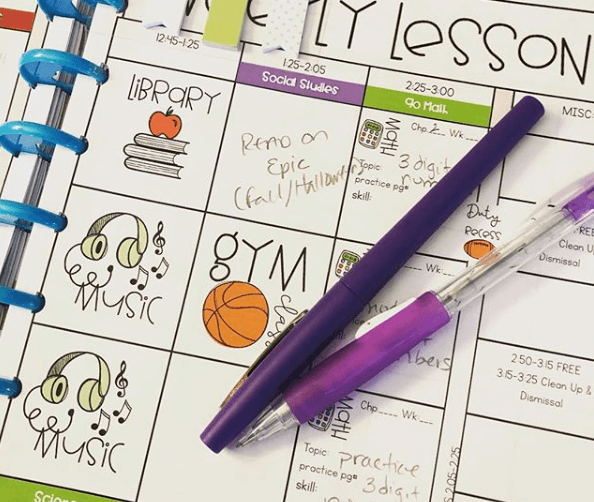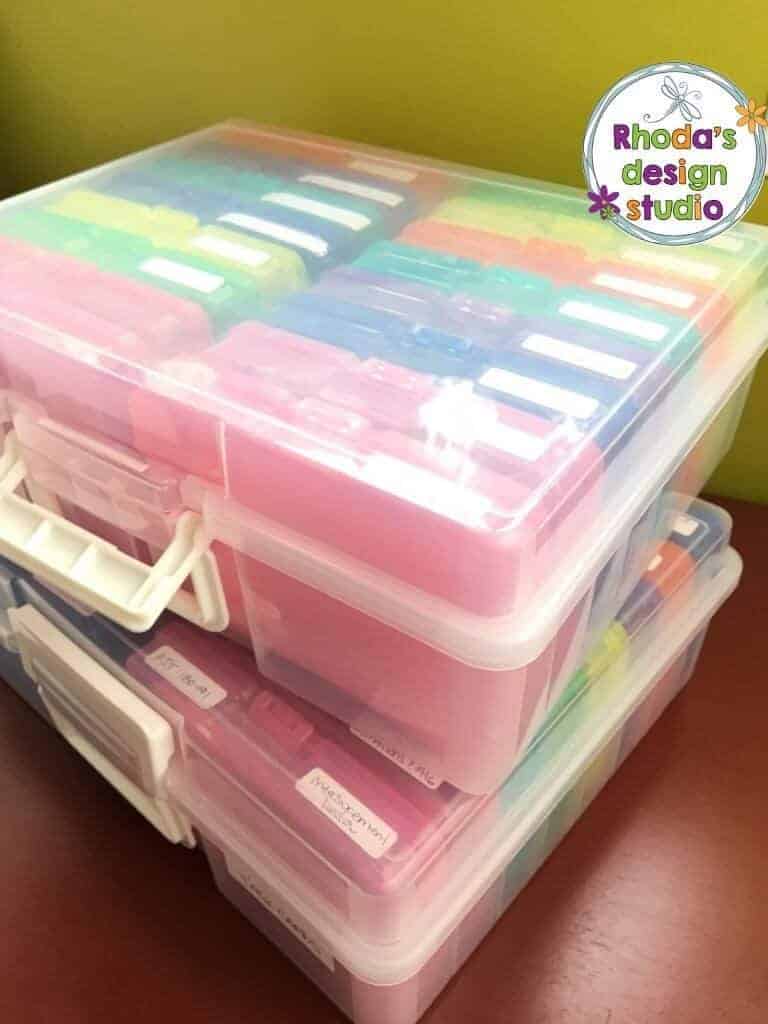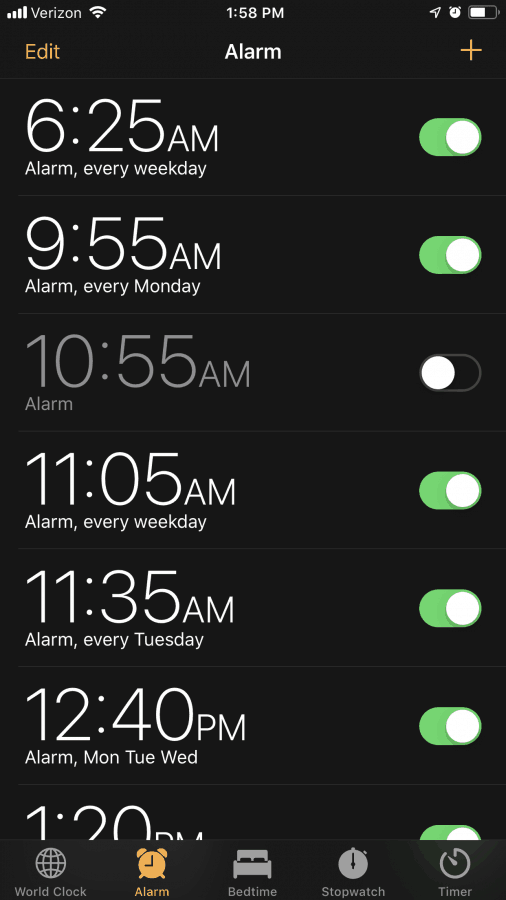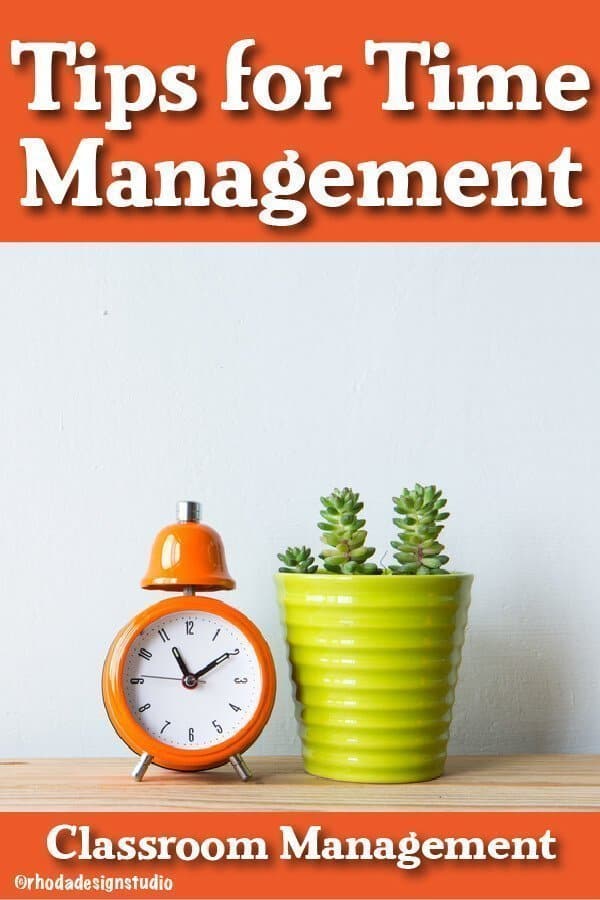Easy Time Management Hacks for Teachers Who Are Busy and Tired
My class and I were visiting the STEAM lab for our weekly project. At one point the STEAM director looked at me and said “You know those performers who can balance a lot of spinning plates at one time? That’s you!”.
That’s exactly what it is like trying to manage all of the things we have to do in a day as teachers. There are all these spinning plates and you have to keep them all spinning and not drop a single one.
Time management is just one of those plates. The others are lesson planning, student’s needs, duties as assigned, meetings, etc. You know the drill and you know which plates you are spinning.

*this post contains affiliate links, please read my disclosure for more information
Time Management for Teachers
Not only do you need to balance the long-term goals of your classroom, your students and their immediate educational needs, and all that paperwork, you also need to balance your personal life as well.
Using effective time management skills, you can increase your productivity, decrease your stress (well maybe a little), and provide a quality education for your students.
Plan Ahead
Time management for teachers needs to start with priorities and organizing your day, week, and month ahead of time. Estimating the time a task will take and planning accordingly will help you to plan the day.

You might like this post by The Simply Organized Teacher for more tips on organizing your lesson plans.
Adding events to your lesson plans for the week or the month as soon as you learn about them will help you to keep yourself on task.
It’s really easy to read an email and think “Okay. I got that in my head and now I know when it will be happening”. Then you get distracted. Sometimes you even forget what day of the week it is. Before you know it, that event is happening NOW and you are rushing to fit it into your day.
Write it down.
Stick it to your calendar.
Whatever type of planning works for you. Add it to the plan when you first see it.
Key Tasks Become Habits
Make those things that you do on a regular basis into an automatic habit. Habits or routines become ingrained and something that you don’t have to think about as much. You do them on autopilot and you can be thinking about other “non-habit” items while you are doing them.
I can walk into my room in the morning and think about all the things I need to do while I am setting out breakfast, turning on my lamps, getting the days papers out, and filling up my water bottle. That whole list of things can be done on autopilot because I have made it a habit or routine.
While I’m doing those things I can be pre-planning what special we have that day, where I need to have them by 9:30 for the assembly, or if there is an extra reward recess.
Organize EVERYTHING!
You are a busy person. Teaching is a fast-paced career. If you can get your supplies and thoughts organized before the kids step into the room, whether that’s the beginning of the year or even the beginning of the day, you will be able to manage your time better.

Label things. Put them in containers. Separate lesson resources by months, themes, or whatever pattern makes sense to your brain and works for your classroom.
I organize my math centers by month. It’s set up to be practice for current topics that we cover that month and a little bit of review for other topics. Knowing what I am going to cover each month as part of planning in advance. Then I organize the lessons, task cards, activities according to the month and I know that I can pull that box for a month and have most of my resources ready to go.
If you use a daily practice for math and reading, put it in a binder and pull it each week when you are making copies. You know that it will be a part of your routine each week, so make the resource easy to put your hands on and then part of your “making copies habit”.
Set Timers, Alarms or Reminders
This one is huge. And so much easier now that we all have electronic devices.
Set reminders or alarms on your phone for specific events that occur each day or even once a week. I have an alarm for the days I have recess duty.

It never fails that I remind myself that morning while I am getting dressed that I have a duty. I probably even remind myself while I am laying out their breakfast for the day.
Two hours later when it’s time for me to go outside, I have probably forgotten that I have a duty or I don’t even remember which day of the week it is.
My alarms tell me that.
You get involved in a math lesson and forget to start clean-up and then you are late for lunch. An alarm or some type of reminder will have your kids paying attention to the schedule as much as you are. Mine know when they hear my alarm that it’s time to transition. They might not know where we are going or what we are doing, but they are prepared to start cleaning up and moving on to the next activity.
You can set alarms for your recess duty, lunch clean-up, specials such as Music and Gym, or even for your end of the day wrap-up. Some of these alarms you can set to recur each week. Figure out your schedule and set them to repeat each day of the week.
Turn them off when summer break begins. Others you can set as a one time deal. Have a meeting at 2:00 p.m. on Wednesday. Set a reminder or an alarm. It will keep you on task and you won’t be running late or flustered because you forgot about it.
Avoid Procrastination
We have all done it. It’s finally time for your prep and you have a pile of grading to do, copies to make, and emails to return. But you are so mentally exhausted that you just want to stare at the wall for 20 minutes.
Take 5 minutes to breath (and stare at the wall if you need to). Go to the bathroom. Now get busy on at least one thing that is on your list. Pick the smallest, least time-consuming thing if you have to. Just pick something and get it done. Don’t leave that pile of grading until Friday when you will “have more time”.
Friday will come around and the pile will be huge and overwhelming. You won’t want to attack it and it will go home in your teacher bag and hang out there all weekend. Then you will haul it back to school.
Working on something, even in small chunks will get you towards your end-goal way faster than leaving it all for one big chunk of time.
Are your students finally reading to themselves quietly? (Hey…a girl can dream!) Take a few minutes to catch up on emails or add those upcoming events to your lesson plans.
Break your prep up into chunks. Get copies made for the next 3 days, grade one set of papers, and then work on prepping that art lesson for next week.
Pocketful of Primary has a number of great videos that help with classroom management and organizing your classroom. Finding what works for you is a great time management technique.
Prioritize Your Most Important Tasks
This one is easier said than done. There will always be something that comes along and interrupts your day or ruins your lesson plans. Something unexpected is sure to happen and knock you off track. That’s just part of being a teacher.
How you deal with derailment is where your time management comes into play. Shorten a lesson. Finish it up during a part of the day that you had something else scheduled (and you can bump that something else to a different time or day).
Let something go.
Maybe it was important enough to add to your lessons, but compared to everything else it wasn’t that important. Incorporate it somewhere else or just let it slide. Your classroom and students will continue to operate just as well.
Don’t Add Another Plate
It’s okay to say no. Don’t add another spinning plate to your act. If someone asks you for a favor or to add another task to your already busy day and all you feel is overwhelming, then you can say no. This is an important part of time management. It’s not just about balancing your time and priorities, it’s about limiting your responsibilities so they are manageable.
It doesn’t have to be a blatant “no”. You can phrase it in a way that lets the other person know that you just don’t have time to add that into your schedule. You can tell them that you aren’t able to manage the Destination Imagination team this year, or you don’t have time for a book club. Whatever it may be if it isn’t mandatory…you don’t have to agree to do it.
This one is hard. You will get better with practice. I promise!
Take Care of You Too
It’s really easy to push your needs aside and just keep plugging away. You want your students to be happy, safe and enjoying their education. You want your admin to be pleased with your hard work. Your family is important and you don’t want them to take a back seat to your career.

Where do you fit in time for your own self-care? I’m sure you have said it to yourself more than once, just like I have: “There isn’t any time in my day to make it to the gym” or “I’ll pack and lunch and start eating better tomorrow”.
Don’t put your health and happiness off until tomorrow. Taking care of yourself means you can provide a better education and care for your students, friends, and family in the long run.
Schedule yourself into your daily or weekly plan the same way you schedule in an IEP or recess duty. It’s just as important. Maybe even more important.
Ask for Help
Part of time management isn’t just doing it all on your own. There are so many resources available for teachers and knowing where to find them or who can help is a great management technique.
Instead of spending hours scanning the internet for a lesson, check out Teachers Pay Teachers, or post your question/need in a Facebook group. Within minutes, other teachers will be there to answer your questions, provide resources, or point you towards a great website.
You do not need to reinvent the wheel to make engaging or rigorous lessons. There are thousands of teachers who are covering the same content and they are a wealth of information. You are too. Be sure and share your wisdom with others as well.
Other Tips for Time Management
- Pull all materials needed for a lesson in a drawer or file so they are ready for that day.
- Assign a student assistant to help pass out papers and materials.
- Place all materials that need to go to the office in one container so you only make one trip.
- Use apps to help your grading go faster.
- Create a bulletin board for roll call and lunch count that students can complete themselves.
- Divide paperwork into categories: To copy, to file, to grade, etc.
- Give your students some jobs. They are part of the classroom community and can complete “chores”.
Time Management is Challenging
Even the most organized person has struggled with time management. There are going to be days that you can’t accomplish everything that you had on your list or in your lesson plans. You are unique and need to find your balance. What works for others, who are juggling their own spinning plates, might not always work for you, but you will learn how to adjust your time management methods so you can optimize your daily routine.
Keep trying. Keep adjusting. Before you know it, you will be managing parts of your day on autopilot, adding things to your schedule so you aren’t late or forgetting meetings, and you won’t be hauling home a teacher-bag of grading that will just hang out in your car for the weekend!
If you have a tip or time management technique that works great for you, please share it in the comments. We can all learn from each other…
Pin this image to save this post for future reference:

